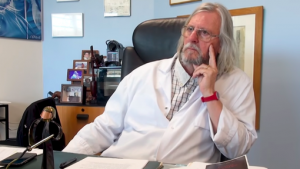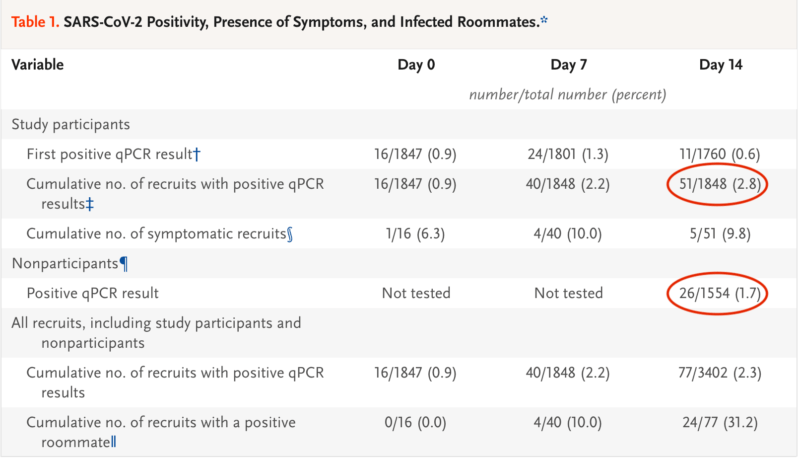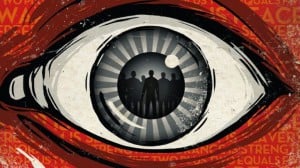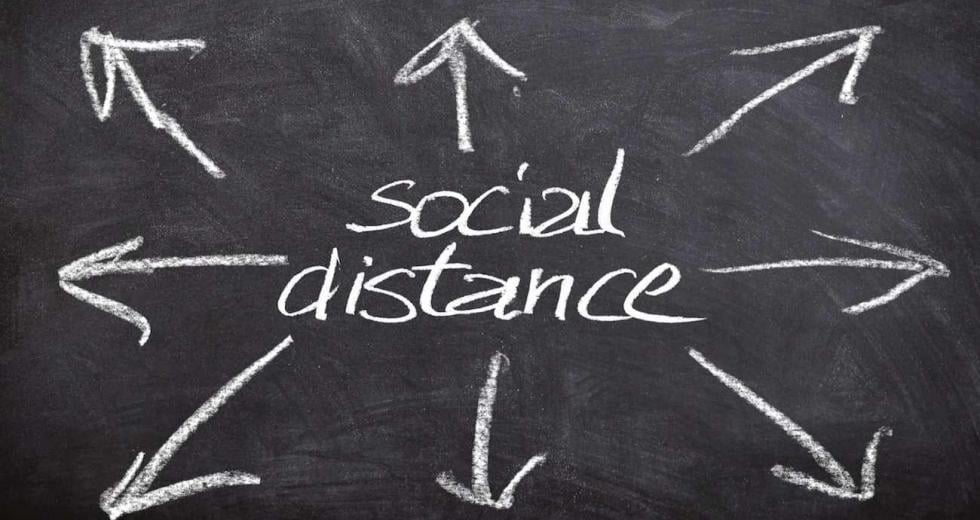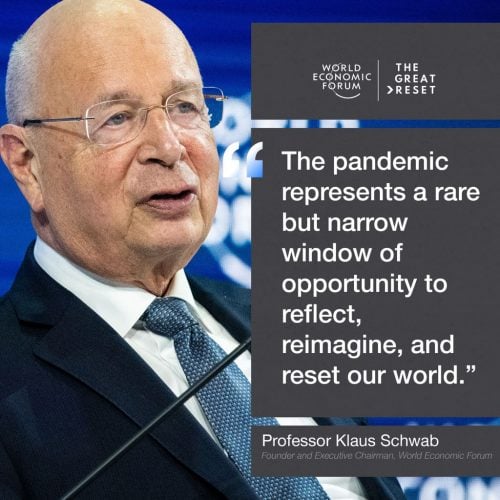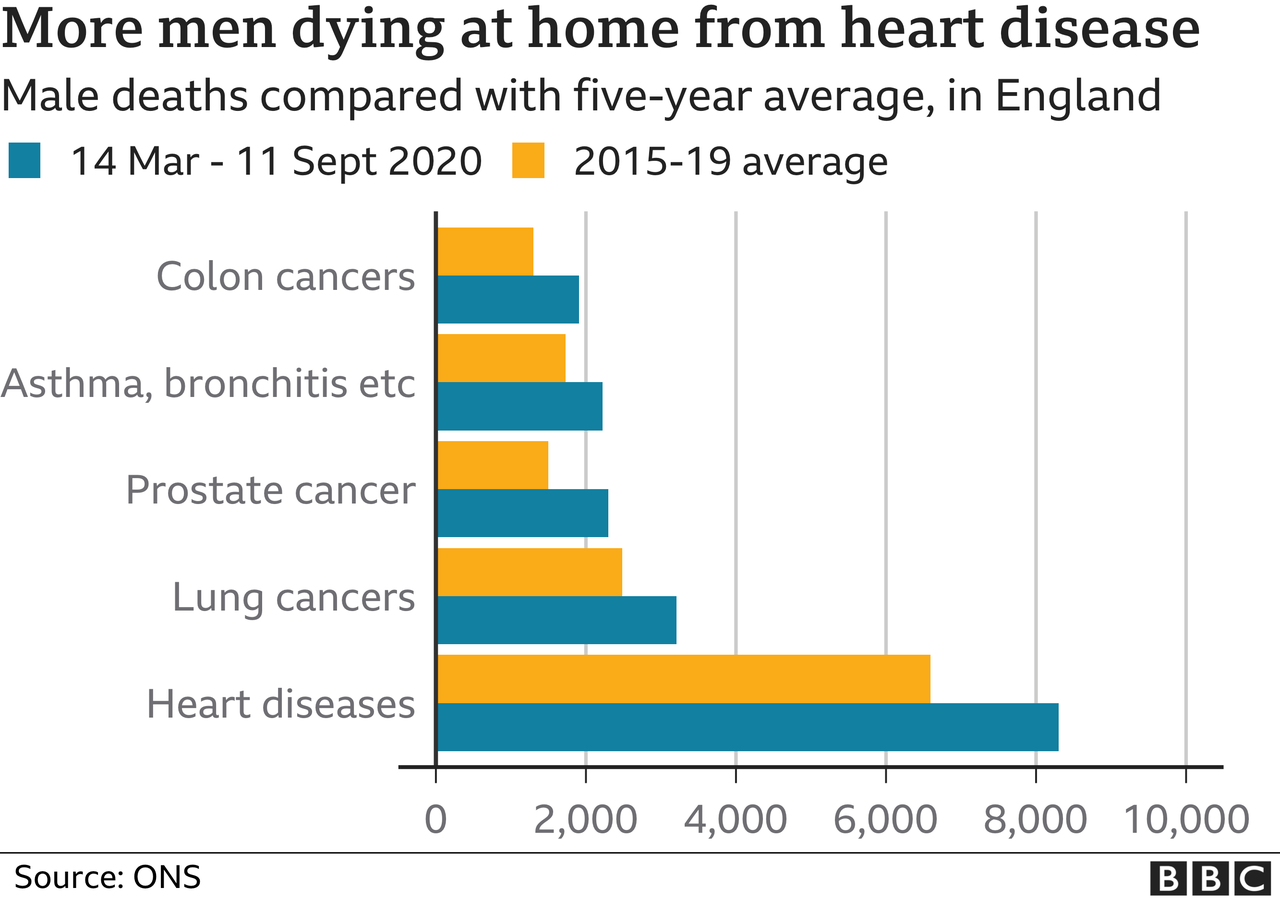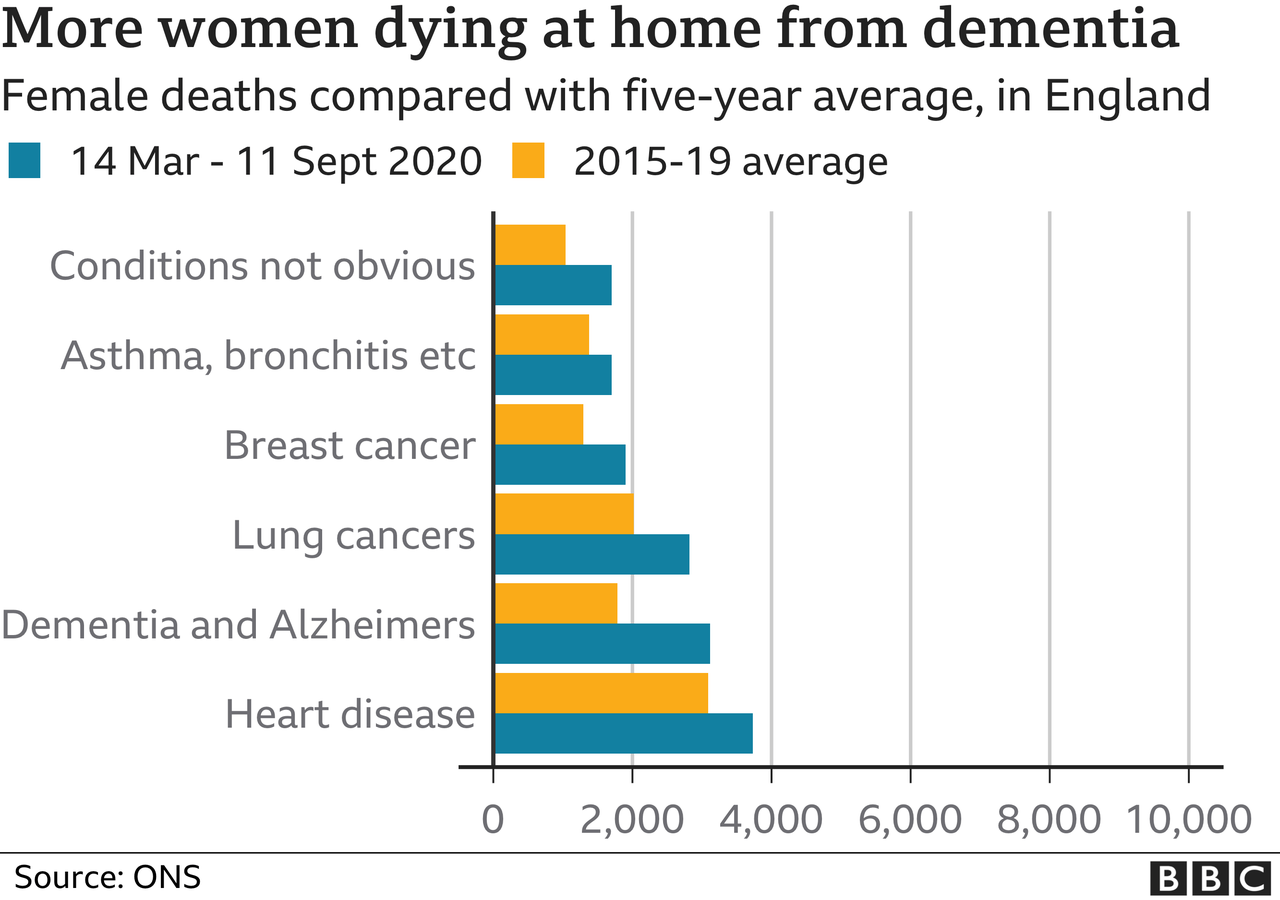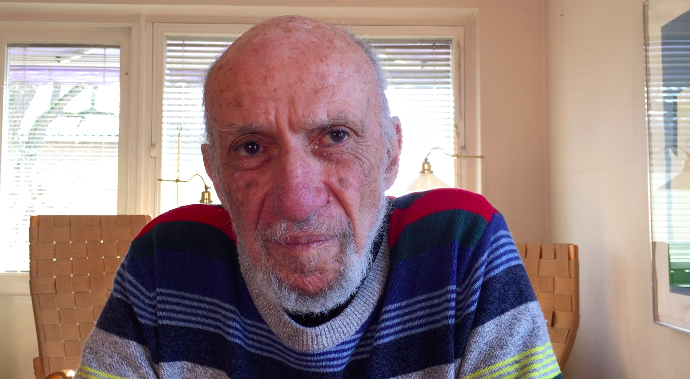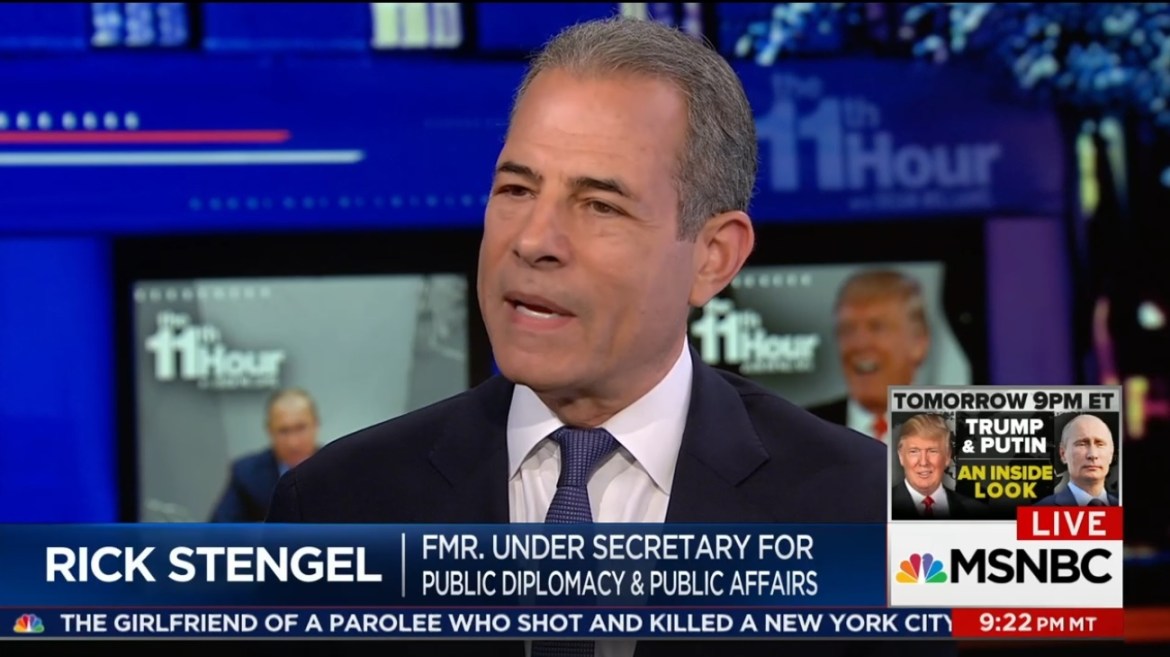Crisis, What Crisis? Hypocrisy and Public Health in the UK
November 18th, 2020 by Rosemary Mason
On 12 March 2020, British PM Boris Johnson, referring to COVID-19, informed the public:
“We’ve all got to be clear; this is the worst public health crisis for a generation.”
Since that time, we have seen lockdowns, on ongoing government-backed fear campaign, fundamental rights being stripped away, dissent censored, inflated COVID-19 death numbers and the use of a flawed PCR test to label perfectly healthy individuals as COVID-19 ‘cases’ in order to fit the narrative of a ‘second wave’.
But, just for a moment, consider an alternative scenario.
The government is extremely worried about a substance that could be contributing to a spiralling public health crisis that has been decades in the making. It has been detected in food and in urine. The government has therefore decided to carry out mass urine testing. It has found millions of ‘cases’. The more it tests, the more ‘cases’ it finds. The government and the media promote the message we are all at risk and should get tested. Hundreds of millions of pounds have been spent to allow for the testing of the entire population.
All cafes, pubs, restaurants and food stores are locked down, aside from those designated to sell only food that is regarded as ‘safe’ by the government. All weddings, parties and get-togethers are banned because contaminated food might be passed around.
Severe restrictions are put in place because this ‘stuff’ is in the air, water, plants, animals, grains, vegetables and meats. And it is in beer and wine, children’s breakfast cereal and snack bars and even in our vaccines. Everyone is under virtual house arrest until this public health crisis is addressed.
Daily government briefings are held on TV with the PM and health officials in attendance. The PM tells everyone that this thing is linked to various conditions, including obesity, depression, Alzheimer’s, ADHD, autism, multiple sclerosis, Parkinson’s, kidney disease, inflammatory bowel disease, brain, breast and prostate cancer, miscarriage, birth defects and declining sperm counts.
Imagine that scenario. But the substance being referred to is very real. It is heavily associated with all the conditions mentioned and is present in our urine and food. But the government does nothing. It does not just do nothing but actively facilitates the marketing of this substance and collude with its manufacturers.
And the name of this ‘stuff’? Glyphosate, the world’s most widely used herbicide. The main culprit – Monsanto’s Roundup. But it is not just glyphosate. It is the cocktail of agricultural chemicals that have been in use for decades.
The real public health crisis
Earlier this year, in a 29-page open letter to Fiona Godlee, editor-in-chief of the British Medical Journal, environmentalist Dr Rosemary Mason spent 11 pages documenting the spiralling rates of disease that she says (supported by numerous research studies cited) are largely the result of exposure to health-damaging agrochemicals, including glyphosate-based herbicides.
The amount of glyphosate-based herbicide sprayed by UK farmers on crops has gone from 226,762 kg in 1990 to 2,240,408 kg in 2016, a 10-fold increase. In her letter, Mason discussed links between multiple pesticide residues (including glyphosate) in food and steady increases in the number of cancers both in the UK as well as allergic diseases, chronic kidney disease, Alzheimer’s, Parkinson’s, obesity and many other conditions.
Agrochemicals are a major contributory factor for the spikes in these diseases and conditions. This is the real public health crisis affecting the UK. Each year, there are steady increases in the numbers of new cancers in the UK and increases in deaths from the same cancers, with treatments not making any difference to the numbers.
While there is much talk of the coronavirus placing immense strain on an underfunded NHS, the health service is already creaking. And people’s immune systems are already strongly compromised due to what Mason outlines. But do we see a ‘lockdown’ on the activities of the global agrochemical conglomerates? Not at all.
We see governments and public health bodies working hand in glove with the agrochemicals manufacturers to ensure ‘business as usual’.
It might seem strange to many that the UK government is seemingly going out of its way (by stripping people of their freedoms) under the guise of a public health crisis but is all too willing to oversee a massive, ongoing one caused by the chemical pollution of our bodies.
Unlike COVID-19, this is a ‘silent’ crisis that actually does affect all sections of the population and causes immense widespread suffering. It is silent because the mainstream media and various official reports in the UK have consistently ignored or downplayed the role of pesticides in fuelling this situation.
Hundreds of lawsuits are pending against Bayer in the US, filed by people alleging that exposure to Monsanto’s Roundup herbicide caused them or their loved ones to develop non-Hodgkin lymphoma and that Monsanto covered up the risks (Roundup is linked to cancers of the bone, colon, kidney, liver, melanoma, pancreas and thyroid).
The WHO International Agency for Research on Cancer (IARC) has declared glyphosate as a 2A carcinogen. In 2017, in a public hearing in Brussels, Dr Christopher Portier and Dr Kate Guyton defended IARC’s position. Portier drew attention to the significance of statistically significant tumour findings that had not been discussed in any of the existing reviews on glyphosate.
Portier concluded that as the regulatory bodies, the European Food Safety Authority and the European Chemicals Agency’s analyses were scientifically flawed. These organisations had also used industry studies that were not in the public domain for ‘reasons of commercial confidentiality’ to support their case that glyphosate was not carcinogenic.
Mason has written numerous open letters to officials citing reams of statistical data to support the contention that agrochemicals, especially Monsanto’s glyphosate-based Roundup, have devastated the natural environment and have also led to spiralling rates of illness and disease, not least among children.
Regulators around the world have falsely assumed that it is safe to use pesticides at industrial scales across landscapes and the effects of dosing whole regions with chemicals have been largely ignored.
A report delivered to the UN Human Rights Council, says that pesticides have catastrophic impacts on the environment, human health and society as a whole.
Authored by Hilal Elver, UN special rapporteur on the right to food, and Baskut Tuncak, UN special rapporteur on toxics, the report states:
“Chronic exposure to pesticides has been linked to cancer, Alzheimer’s and Parkinson’s diseases, hormone disruption, developmental disorders and sterility.”
The authors argue:
“While scientific research confirms the adverse effects of pesticides, proving a definitive link between exposure and human diseases or conditions or harm to the ecosystem presents a considerable challenge. This challenge has been exacerbated by a systematic denial, fuelled by the pesticide and agro-industry, of the magnitude of the damage inflicted by these chemicals and aggressive, unethical marketing tactics.”
Elver says:
“The power of the corporations over governments and over the scientific community is extremely important. If you want to deal with pesticides, you have to deal with the companies.”
Tuncak states:
“Paediatricians have referred to childhood exposure to pesticides as creating a “silent pandemic” of disease and disability. Exposure in pregnancy and childhood is linked to birth defects, diabetes and cancer. Because a child’s developing body is more sensitive to exposure than adults and takes in more of everything – relative to their size, children eat, breathe and drink much more than adults – they are particularly vulnerable to these toxic chemicals.”
According to Tuncak, increasing evidence shows that even at “low” doses of childhood exposure, irreversible health impacts can result. But most victims cannot prove the cause of their disability or disease, limiting our ability to hold those responsible to account.
He concludes:
“The overwhelming reliance of regulators on industry-funded studies, the exclusion of independent science from assessments and the confidentiality of studies relied upon by authorities must change.”
The authors were severely critical of the global corporations that manufacture pesticides, accusing them of the “systematic denial of harms”, “aggressive, unethical marketing tactics” and heavy lobbying of governments which has “obstructed reforms and paralysed global pesticide restrictions”.
Way back in 1962, Rachel Carson’s book Silent Spring raised the red flag about the use of harmful synthetic pesticides; yet, despite the warnings, the agrochemical giants have ever since been poisoning humans and the planet, raking in enormous profits.
Michael McCarthy, writer and naturalist, says that three generations of industrialised farming with a vast tide of poisons pouring over the land year after year after year since the end of the Second World War is the true price of pesticide-based agriculture, which society has for so long blithely accepted.
Power is now increasingly concentrated in the hands of a handful of transnational agribusiness corporations which put profit and market control ahead of food security, health and nutrition and biodiversity. Due to their political influence and financial clout, these companies are waging a chemical warfare on nature and people, while seeking to convince us that their model of agriculture – based on proprietary seeds and chemicals – is essential for feeding a burgeoning global population.
Consider that none of the more than 400 pesticides that have been authorised in the UK have been tested for long-term actions on the brain: in the foetus, in children or in adults.
Theo Colborn’s crucial research in the early 1990s showed that endocrine disrupters (EDCs) were changing humans and the environment, but this research was ignored by officials. Glyphosate is an EDC and a nervous system disrupting chemical.
In the book published in 1996 ‘Our Stolen Future: How Man-made Chemicals are Threatening our Fertility, Intelligence and Survival’ Colborn and colleagues revealed the full horror of what was happening to the world as a result of contamination with EDCs. There was emerging scientific research about how a wide range of these chemicals can disrupt delicate hormone systems in humans. These systems play a critical role in processes ranging from human sexual development to behaviour, intelligence and the functioning of the immune system.
In addition to glyphosate, EDCs include polychlorinated biphenyls (PCBs). DDT, chlordane, lindane, aldrin, dieldrin, endrin, toxaphene, heptachlor, dioxin, atrazine and dacthal.
In 2007, 25 experts in environmental health from 11 countries (including from the UK) met on the Faroes and contributed to this statement:
“The periods of embryonic, foetal and infant development are remarkably susceptible to environmental hazards. Toxic exposures to chemical pollutants during these windows of increased susceptibility can cause disease and disability in infants, children and across the entire span of human life.”
The Department of Health’s School Fruit and Vegetable Scheme (SFVS) has residues of 123 different pesticides that impact the gut microbiome. Obesity is associated with low diversity of bacteria in the microbiome and glyphosate adversely affects or destroys much of the beneficial bacteria. Roundup (and other biocides) is linked to gross obesity, neuropsychiatric disorders and other chronic diseases, which are all on the rise and adversely impact brain development in children and adolescents.
Moreover, type 2 diabetes is associated with being very overweight. According to NHS data, almost four in five of 715 children suffering from it were also obese.
Graham MacGregor, a professor of cardiovascular health at Queen Mary University of London who is also the chair of the campaign group Action on Sugar, says:
“Type 2 diabetes is a disaster for the child and their family and for the NHS. If a child gets type 2 diabetes, it’s condemning them to a lot of complications of that condition, such as blindness, amputations and kidney disease.”
He went on to explain that we are in a crisis and that the government does not seem to be taking action. UK obesity levels now exceed those of the US.
The human microbiome is of vital importance to human health yet it is under chemical attack. Glyphosate disrupts the shikimate pathway within these gut bacteria and is a strong chelator of essential minerals.
Many key neurotransmitters are located in the gut. Aside from affecting the functioning of major organs, these transmitters affect our moods and thinking. There is strong evidence that gut bacteria can have a direct physical impact on the brain.
Image on the right: Mike Mozart/Flickr/cc
Dr Michael Antoniou of King’s College London has found that Roundup herbicide and its active ingredient glyphosate cause a dramatic increase in the levels of two substances, shikimic acid and 3-dehydroshikimic acid, in the gut, which are a direct indication that the EPSPS enzyme of the shikimic acid pathway has been severely inhibited. Roundup and glyphosate affected the microbiome at all dose levels tested, causing shifts in bacterial populations.
A quarter of all food and over a third of fruit and vegetables consumed in the UK contain pesticide cocktails, with some items containing traces of up to 14 different pesticides. The industry (for it is the industry that does the testing, on behalf of regulators) only tests one pesticide at a time, whereas farmers spray a cocktail of pesticides.
Ian Boyd, the former Chief Scientific Adviser to Defra, says pesticides, once they have been authorised, are never reviewed.
Glyphosate is distributed to every organ of the body and has multiple actions: it is an herbicide, an antibiotic, a fungicide, an antiprotozoal, an organic phosphonate, a growth regulator, a toxicant, a virulence enhancer and is persistent in the soil. It chelates (captures) and washes out the following minerals: boron, calcium, cobalt, copper, iron, potassium, magnesium, manganese, nickel and zinc.
In a paper published in King’s Law Journal – ‘The Chemical Anthropocene: Glyphosate as a Case Study of Pesticide Exposures’ – the authors Alessandra Arcuri and Yogi Hale Hendlin state:
“As the science against glyphosate safety mounts and lawsuits threaten its chemical manufacture’s profits, the next generation of GMO crops are being keyed to the pesticide dicamba, sold commercially as XtendiMax® – and poised to be the next glyphosate. Regulatory agencies have historically been quick to approve products but slow to reconsider regulations after the decades of accumulated harms become apparent.”
They add that the entrenched asymmetries between public and ecological health and fast-to-market new chemicals is exacerbated by the seeming lack of institutionalised precautionary policies.
Britain and the US are in the midst of a barely reported public health crisis. These countries are experiencing not merely a slowdown in life expectancy, which in many other rich countries is continuing to lengthen, but the start of an alarming increase in death rates across all our populations, men and women alike. People are needlessly dying early.
Research by US-based EWG found glyphosate residues on popular oat cereals, oatmeal, granola and snack bars. Almost 75% of the 45 samples tested had glyphosate levels higher than what EWG scientists consider protective of children’s health with an adequate margin of safety. Disturbing levels of such residues have been detected in the UK too.
There are shockingly high levels of weed killer in UK breakfast cereals. After testing these cereals at the Health Research Institute in Iowa, Dr Fagan, director of the centre, said:
“These results are consistently concerning. The levels consumed in a single daily helping of any one of these cereals, even the one with the lowest level of contamination, is sufficient to put the person’s glyphosate levels above the levels that cause fatty liver disease in rats (and likely in people).”
Glyphosate also causes epigenetic changes in humans and animals: diseases skip a generation. Washington State University researchers have found a variety of diseases and other health problems in the second- and third-generation offspring of rats exposed to glyphosate. In the first study of its kind, the researchers saw descendants of exposed rats developing prostate, kidney and ovarian diseases, obesity and birth abnormalities.
Writing in the journal Scientific Reports, the researchers say they saw “dramatic increases” in several pathologies affecting the second and third generations. The second generation had “significant increases” in testis, ovary and mammary gland diseases as well as obesity. In third-generation males, the researchers saw a 30% incidence of prostate disease — three times the rate of a control population. The third generation of females had a 40% incidence of kidney disease, or four times the rate of the controls.
More than one-third of the second-generation mothers had unsuccessful pregnancies, with most of those affected dying. Two out of five males and females in the third generation were obese.
Researchers call this phenomenon “generational toxicology” and they have seen it over the years in fungicides, pesticides, jet fuel, the plastics compound bisphenol A, the insect repellent DEET and the herbicide atrazine. At work are epigenetic changes that turn genes on and off, often because of environmental influences.
A study published in February 2019 found glyphosate increased the risk of non-Hodgkin lymphoma by as much as 41%. A Washington State University study published in December 2019 found state residents living close to areas subject to treatments with the herbicide are one-third more likely to die an early death from Parkinson’s disease.
Robert F Kennedy Jr, one of the attorney’s fighting Bayer (which has bought Monsanto) in the US courts, has explained that for four decades Monsanto manoeuvred to conceal Roundup’s carcinogenicity by capturing regulatory agencies, corrupting public officials, bribing scientists and engaging in scientific fraud to delay its day of reckoning. He says that Monsanto also faces cascading scientific evidence linking glyphosate to a constellation of other injuries that have become prevalent since its introduction, including obesity, depression, Alzheimer’s, ADHD, autism, multiple sclerosis, Parkinson’s, kidney disease, inflammatory bowel disease, brain, breast and prostate cancer, miscarriage, birth defects and declining sperm counts.
Moreover, strong science suggests glyphosate is the culprit in the exploding epidemics of celiac disease, colitis, gluten sensitivities, diabetes and non-alcoholic liver cancer which, for the first time, is attacking children as young as 10.
And yet, as Mason has described in her work, the UK government had colluded with Monsanto for many years.
Boris Johnson, in his first speech to parliament as PM, said:
“Let’s start now to liberate the UK’s extraordinary bioscience sector from anti-genetic modification rules…”
This could mean the irresponsible introduction of genetically modified Roundup Ready food crops to the UK, which would see the amount of glyphosate in British food reaching new levels (levels which are already disturbing).
So much for protecting public health.
Government collusion
David Cameron appointed Michael Pragnell, founder of Syngenta and former Chairman of CropLife International, to the board of Cancer Research UK (CRUK) in 2010. He became Chairman in 2011. At one time or another, CropLife International´s member list has included BASF, Bayer CropScience, Dow AgroSciences, DuPont, FMC Corp, Monsanto, Sumitomo and Syngenta. Many of these make their own formulated glyphosate.
Syngenta is a member of the European Glyphosate Task Force, which sought to renew (and succeeded in renewing) European glyphosate registration. Not surprisingly, the CRUK website denies that there is any link between pesticides and cancer.
In February 2019, at a Brexit meeting on the UK chemicals sector, UK regulators and senior officials from government departments listened to the priorities of the Bayer Crop Science Division. During the meeting (Westminster Energy, Environment & Transport Forum Keynote Seminar: Priorities for UK chemicals sector – challenges, opportunities and the future for regulation post-Brexit), Janet Williams, head of regulatory science at Bayer Crop Science Division, made her priorities for agricultural chemical manufacturers known.
Dave Bench was also a speaker. Bench is a senior scientist at the UK Chemicals, Health and Safety Executive and director of the agency’s EU exit plan and has previously stated that the regulatory system for pesticides is robust and balances the risks of pesticides against the benefits to society.
That statement was merely for public consumption and the benefit of the agrochemical industry. The industry (for it is the industry that does the testing, on behalf of regulators) only tests one pesticide at a time, whereas farmers spray a cocktail of pesticides.
But such is the British government’s willingness to protect pesticide companies that it is handing agrochemical giants BASF and Bayer enormous pay-outs of Covid-19 support cash. The announcement came just weeks after Bayer shareholders voted to pay £2.75 billion in dividends. The fact that Bayer then went on to receive £600 million from the government speaks volumes of where the government’s priorities lie.
In Mason’s report, ‘Why Does Bayer Crop Science Control Chemicals in Brexit Britain’, she states that Bayer is having secret meetings with the British government to determine which agrochemicals are to be used after Brexit once Britain is ‘free’ of EU restrictions and becomes as deregulated as the US.
Such collusion comes as little surprise as the government’s ‘strategy for UK life sciences’ is already dependent on funding from pharmaceutical corporations and the pesticides industry.
Syngenta’s parent company was in 2010 AstraZeneca. At that time, Syngenta and AstraZeneca were represented on the UK Advisory Committee on Pesticides and the Committee on Toxicity of Chemicals in Foods, Consumer Products and the Environment. The founder of Syngenta, Michael Pragnell, was the Chairman of Cancer Research UK (CRUK) from 2011-2017. CRUK started by giving money (£450 million a year) to the Government’s Strategy for UK Life Sciences and AstraZeneca provided 22 compounds to academic research to develop medicines. AstraZeneca manufactured six different anti-cancer drugs mainly aimed at breast and prostate cancer.
It seems like a highly profitable and cosy relationship between the agrochemical and pharmaceuticals sectors and the government at the expense of public health.
In finishing, let us take a brief look at the Washington-based International Life Sciences Institute (ILSI). Its members have occupied key positions on EU and UN regulatory panels. It is, however, an industry lobby group that masquerades as a scientific health charity.
The ILSI describes its mission as “pursuing objectivity, clarity and reproducibility” to “benefit the public good”. But researchers from the University of Cambridge, Bocconi University in Milan and the US Right to Know campaign assessed over 17,000 pages of documents under US freedom of information laws to present evidence of influence peddling.
ILSI Vice-President, Prof Alan Boobis, is currently the Chairman of the UK Committee on Toxicity of Chemicals in Food, Consumer Products and the Environment (CoT).
He was directly responsible for authorising chemicals such as glyphosate, chlorothalonil, clothianidin and chlorpyrifos that are impacting human health and creating a crisis in biodiversity. His group and others have authorised glyphosate repeatedly. He and David Coggon, the previous Chairman of CoT (2008-2015), were appointed as experts on Science Advice for Policy by European Academies (SAPEA), a group allied with the agrochemical industry and is fighting for higher pesticide exposure.
The reality of the agrochemical industry is masked by well-funded public relations machinery. The industry subverts official agencies and regulatory bodies and supports prolific lobby organisations and (‘public scientists’) which masquerade as neutral institutions.
And for the record, it is possible to farm productively and profitably without the use of synthetic agrochemicals – and to achieve food security. For instance, see the article ‘A Skeptical Farmer’s Monster Message on Profitability’ based on one US farmers journey from chemical-dependent farming to organic on his 8,000-acre farm (discussed on the AgWeb site) or ‘The Untold Success Story of Agroecology in Africa’ in the journal Development (2015). From the Tigray region of Ethiopia to various high-level (UN) reports that have recommended agroecology there are many examples, too many to discuss here.
The UK government says it cares so much about the nation’s health (the infection mortality rate for COVID-19 appears to be similar to those of a bad seasonal flu) but has presided over and facilitated a genuine public health crisis for years. And it is now pumping billions of pounds of public money into a track, trace and test regime when it could have used it to boost overall NHS capacity; remember when the government stated that the initial lockdown was implemented to protect the NHS?
In fact, the government is spending the equivalent of 77% of the NHS annual revenue budget on an “unevaluated, underdesigned national programme leading to an insufficiently supported intervention – in many cases for the wrong people” says a recent editorial in the BMJ.
In the meantime, it is investing heavily in a (possibly mandatory) vaccine that based on the design of the trials – according to a recent article in the same journal – may have no discernible impact on saving lives or preventing serious outcomes or the transmission spread of infection.
*
Note to readers: please click the share buttons above or below. Forward this article to your email lists. Crosspost on your blog site, internet forums. etc.
Readers can access all Rosemary Mason’s reports on the academia.edu site.
Rosemary Mason is a retired doctor and environmental campaigner.
Colin Todhunter is an independent writer. He is a frequent contributor to Global Research.
Featured image: Global Justice Now /Flickr/CC BY


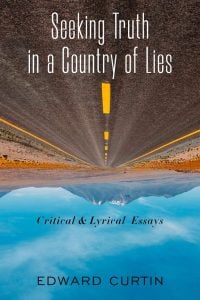 Seeking Truth in a Country of Lies
Seeking Truth in a Country of Lies
